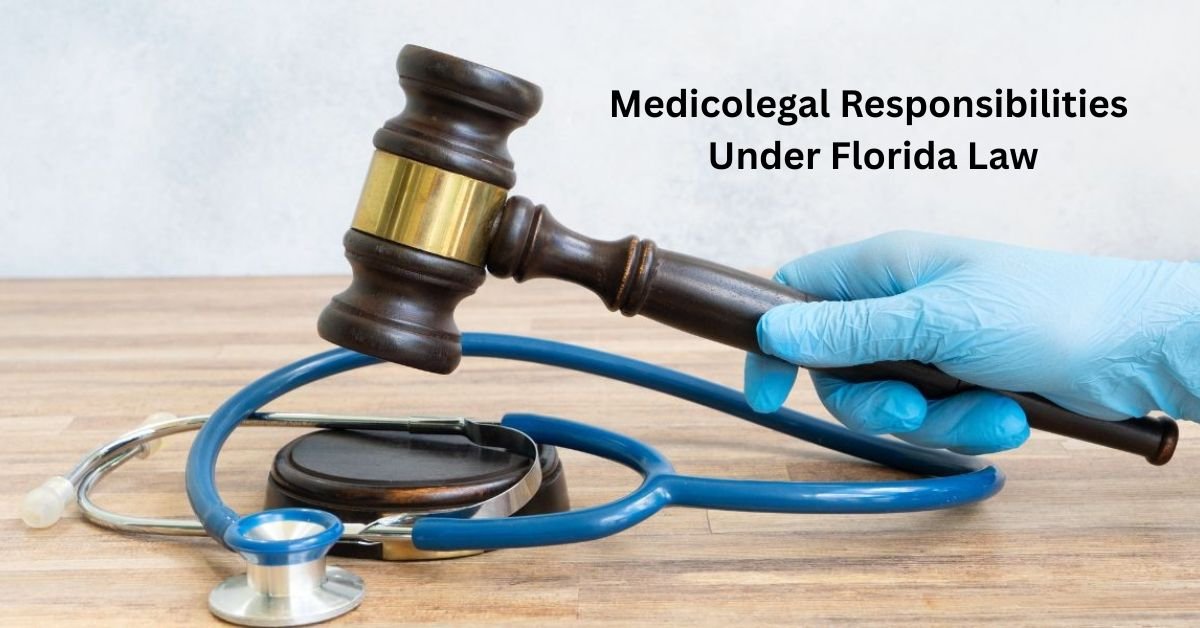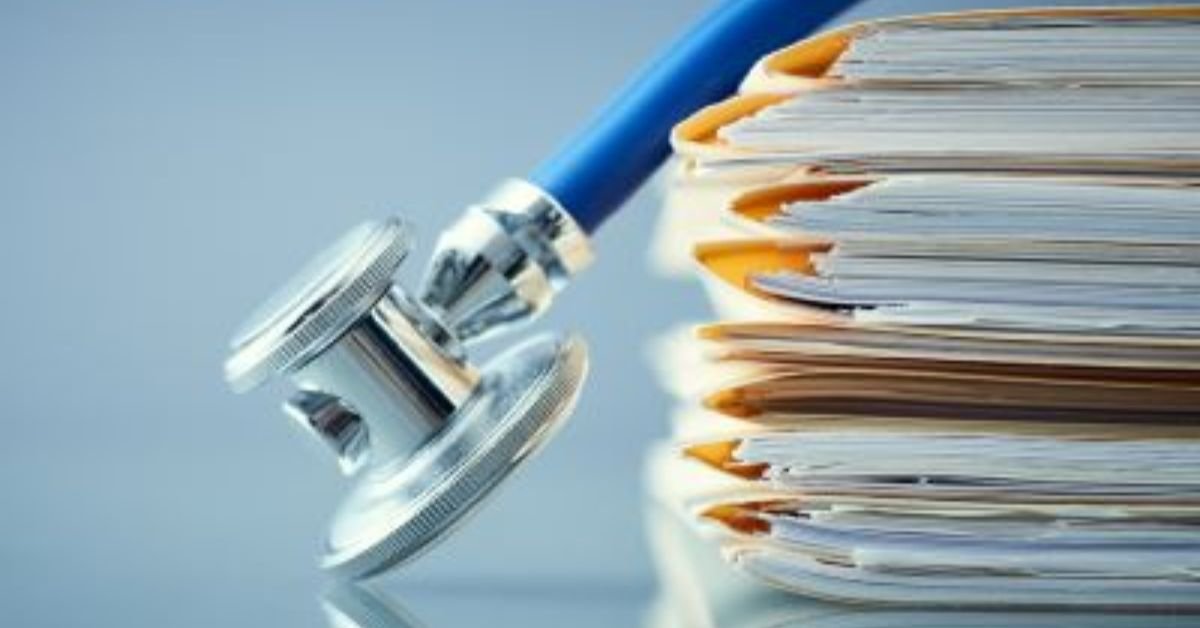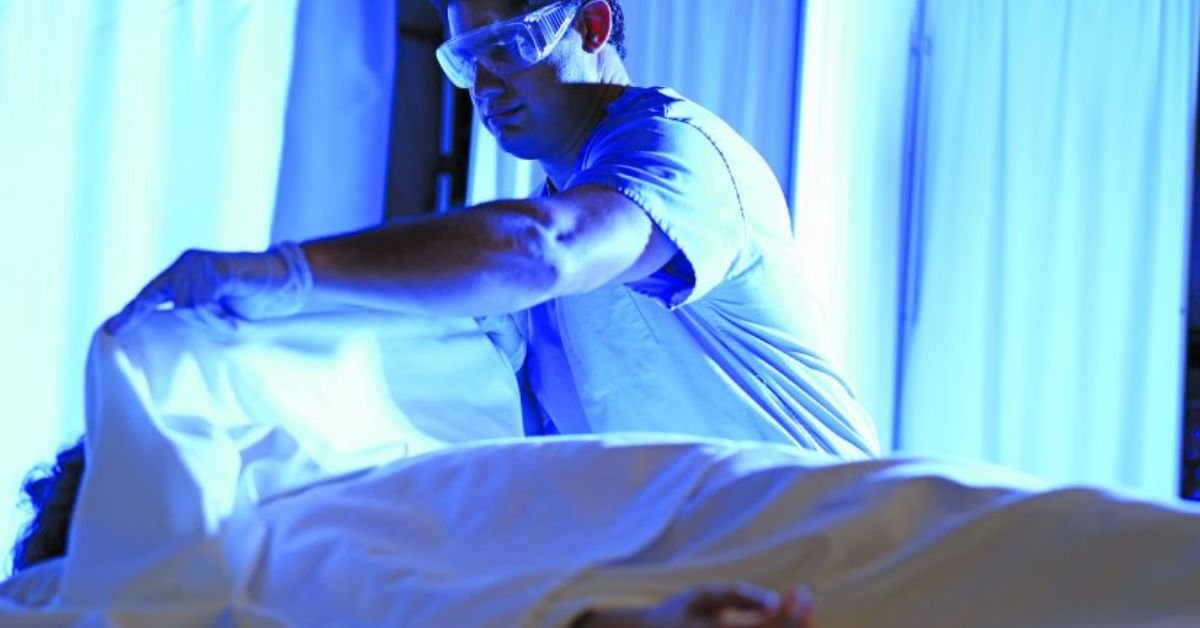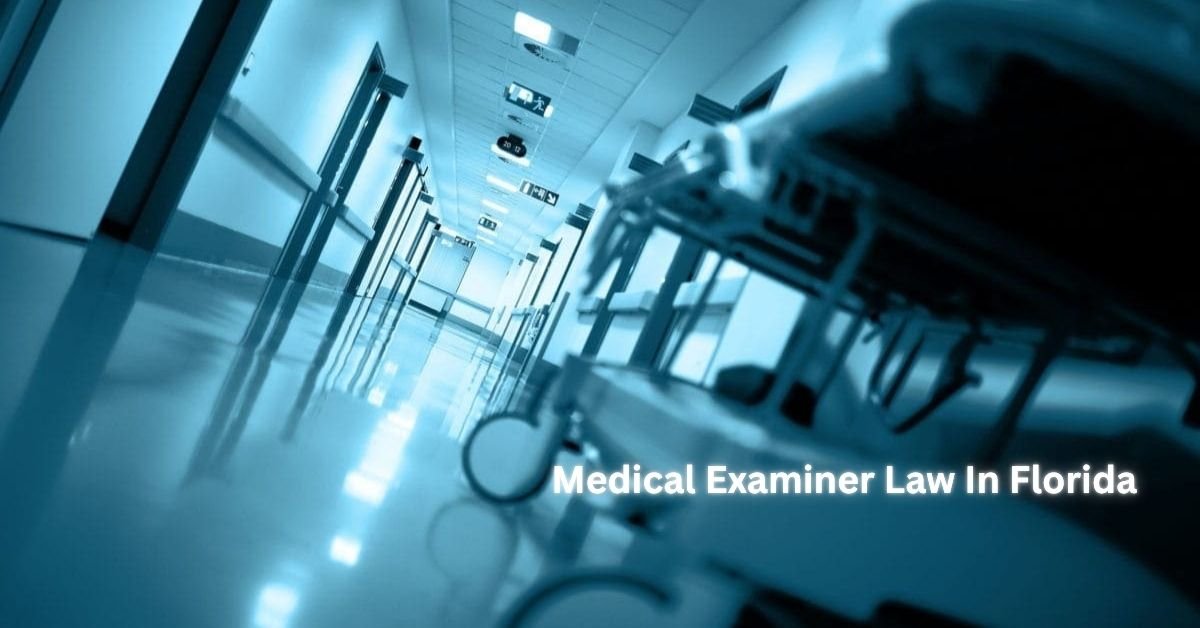Medicolegal responsibilities under Florida law form a critical interface between medical practice and legal obligations. Healthcare providers, medical examiners, and allied forensic professionals in Florida are governed by specific statutes that outline their duties in cases involving injury, death, abuse, and public health concerns. These responsibilities ensure that patient care, public safety, and justice are maintained through accurate documentation, timely reporting, and legal compliance.
This article offers an in-depth overview of key medicolegal responsibilities in Florida, focusing on death investigations, mandatory reporting, confidentiality, and legal cooperation.
Definition of Medicolegal Responsibility
Medicolegal responsibilities are legal duties that arise when medical professionals encounter situations with potential legal implications. These may include:
- Suspicious or violent deaths
- Criminal injuries (e.g., gunshot or stab wounds)
- Suspected abuse or neglect
- Disease outbreaks or environmental threats
- Legal testimony in court proceedings
Florida law holds providers accountable for following specific procedures in such cases. Noncompliance can result in civil penalties, professional discipline, or criminal charges.
1. Death Reporting and Investigation
Under Florida law, certain types of deaths must be reported to the local District Medical Examiner. These include:
- Violent or suspicious deaths
- Sudden deaths without a known medical history
- Deaths occurring during medical procedures or under anesthesia
- Deaths in custody or correctional institutions
Once notified, the Medical Examiner investigates the case to determine the cause and manner of death. This process often includes scene investigation, autopsy, toxicology, and tissue analysis. Medical Examiners are legally authorized to take jurisdiction over such deaths and must comply with established procedures.
More information on death investigation procedures can be found via the Florida Medical Examiners Commission.
2. Mandatory Injury Reporting
Healthcare providers are legally required to report certain injuries that may result from criminal acts. Under Florida law, mandatory reporting includes:
- Gunshot wounds
- Knife wounds inflicted by others
- Burns covering significant portions of the body
- Injuries consistent with assault, abuse, or neglect
These reports must be made promptly to local law enforcement. Medical professionals are not required to determine intent or assign blame—only to report that the injury has occurred. Failure to report such cases may be treated as a misdemeanor offense.
Hospitals and clinics are expected to have internal protocols for handling these incidents, ensuring timely compliance and documentation.
3. Reporting Abuse and Neglect
Florida law mandates the reporting of suspected abuse involving:
- Children
- Vulnerable adults (elderly or disabled)
- Residents of care facilities or state institutions
Healthcare workers, including physicians, nurses, and EMTs, are considered mandatory reporters. Upon reasonable suspicion of abuse, they must contact the Florida Department of Children and Families (DCF). This includes cases involving physical harm, emotional neglect, sexual abuse, or exploitation.
Reports can be submitted through the Florida Abuse Hotline or by calling 1-800-96-ABUSE.
There is no legal requirement for certainty—only that a provider reasonably believes abuse may have occurred. Failure to report can result in administrative sanctions, loss of licensure, or criminal penalties.
4. Death Certification and Documentation
When a death falls under the jurisdiction of the medical examiner, that office becomes responsible for certifying the cause and manner of death. These determinations are used on death certificates and play an important role in legal, insurance, and public health records.
The certification process may involve autopsy findings, toxicological data, and other investigative elements. Manner of death is categorized as:
- Natural
- Accident
- Suicide
- Homicide
- Undetermined
Physicians not associated with the medical examiner system are typically responsible for certifying natural deaths in clinical settings. However, when death occurs under legally defined circumstances, only the District Medical Examiner can issue the certification.
5. Confidentiality and Disclosure
Florida recognizes the importance of maintaining medical confidentiality. However, there are exceptions where disclosure is legally permitted or required:
- When responding to subpoenas or court orders
- When cooperating with a medical examiner investigation
- In the case of communicable diseases, as required by public health law
- When abuse or neglect is suspected and must be reported
Under these exceptions, hospitals and healthcare providers may release relevant information without patient or family consent. Records must be handled in accordance with the Health Insurance Portability and Accountability Act (HIPAA) and Florida privacy statutes.
6. Testimony and Legal Cooperation
Medical professionals in Florida may be subpoenaed to appear in court as witnesses or to provide documentation. This can occur in:
- Criminal cases (e.g., homicide, assault, abuse)
- Civil litigation (e.g., malpractice, wrongful death)
- Administrative hearings (e.g., licensing or disciplinary review)
Medical Examiners frequently testify as expert witnesses. They must present objective, scientific findings and avoid speculation. Their testimony is often based on autopsy results, injury pattern analysis, or toxicological findings.
Compliance with subpoenas is legally mandated. Willful failure to appear may result in contempt charges or professional penalties.
7. Public Health Responsibilities
In addition to legal duties related to crime and death, healthcare providers also bear responsibilities under Florida public health laws. These include mandatory reporting of certain communicable diseases to the Florida Department of Health.
Examples include:
- Tuberculosis
- Hepatitis
- Meningitis
- COVID-19
Reporting allows public health agencies to conduct contact tracing, issue alerts, and manage outbreaks. Institutions must maintain accurate records and transmit data in real time.
Current disease reporting requirements and instructions are maintained by the Florida Department of Health.
8. Evidence Handling and Chain of Custody
In medicolegal cases—particularly those involving suspicious death, assault, or abuse—healthcare workers and forensic personnel may collect and preserve evidence for legal use. Examples include:
- Clothing or projectiles removed during surgery or autopsy
- Blood, urine, or tissue samples
- Photographs of injuries or wounds
- Foreign materials such as fibers, soil, or biological debris
Proper evidence handling includes labeling, documentation, and maintaining an unbroken chain of custody. Evidence may be submitted to crime labs or presented in court. Mishandling or contamination can compromise a legal case.
9. Legal Protections and Immunity
Florida law provides certain immunities to encourage compliance with mandatory reporting laws. These include protections for:
- Physicians reporting suspected child abuse
- Hospitals reporting gunshot wounds
- Medical Examiners performing autopsies and issuing reports
As long as reports are made in good faith and within the scope of practice, individuals and institutions are generally protected from civil or criminal liability. These provisions ensure that professionals can fulfill their legal obligations without fear of retaliation.
10. Education and Training
Healthcare professionals in Florida are encouraged to stay current on medicolegal requirements through:
- Continuing medical education (CME)
- Hospital in-service training programs
- Workshops and seminars on legal compliance
- Forensic science conferences and briefings
Training ensures consistency across institutions and enhances legal compliance.
Conclusion
Medicolegal responsibilities under Florida law are designed to protect the public, preserve justice, and uphold professional standards in healthcare and forensic settings. From reporting deaths and injuries to testifying in court and safeguarding public health, these duties are essential to an effective, accountable medicolegal system. Understanding the scope and application of these responsibilities helps ensure that all involved professionals—medical, legal, and forensic—operate with integrity and in full compliance with Florida’s legal framework.












